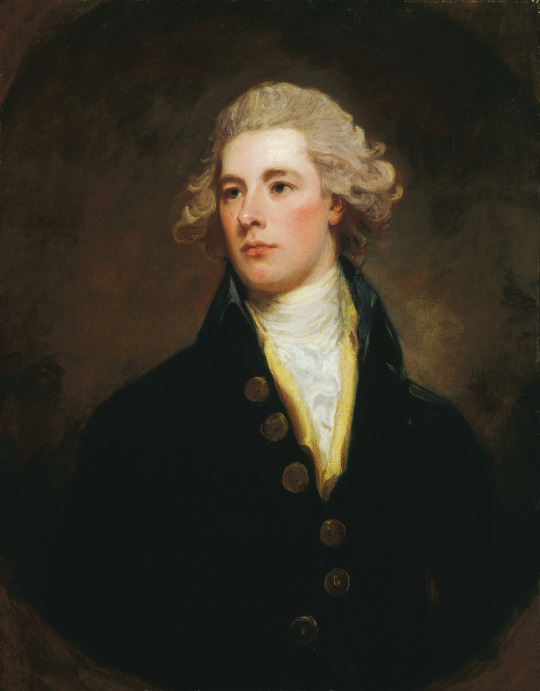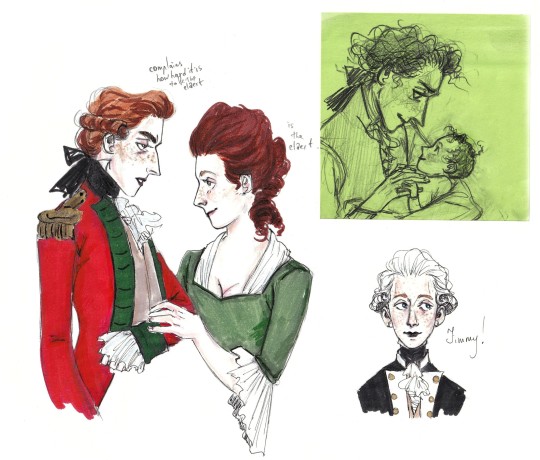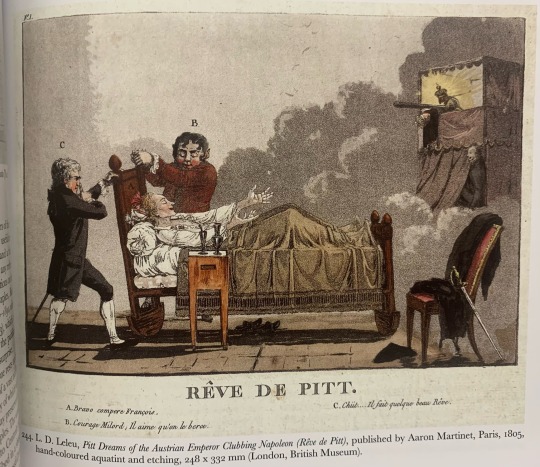#william Pitt
Text

William Pitt the Younger by George Romney
#william pitt#william pitt the younger#art#portrait#george romney#england#great britain#prime minister#english#british#history#europe#french revolutionary wars#napoleonic wars#french revolution#georgian era#georgian
71 notes
·
View notes
Text


sad boy birthday
64 notes
·
View notes
Text
Historian Alice Loxton explaining this political satire of Napoleon and William Pitt the Younger, 1805, by James Gillray. Displayed at the London Original Print Fair.
She calls it “one of the most famous political cartoons ever made.”
#The Plumb-pudding in danger#State Epicures taking un Petit Souper#James Gillray#Napoleon#napoleon bonaparte#video#gif#print#illustration#satire#caricature#cartoon#political cartoon#political satire#19th century#napoleonic era#napoleonic#napoleonic wars#William Pitt#Pitt#william pitt the younger#art#France#Britain#England#uk#British empire#French empire#first french empire#globe
167 notes
·
View notes
Text
@mvchiavelli YOUUUU *insert jesse yelling “he cant keep getting away with this* —— anyways here’s Honest Billy in Brat by her 😭
#not my edit#18th century#william pitt#william pitt the younger#madness of king george#georgian era#napoleonic era
16 notes
·
View notes
Text
In the mean while Every Monarch on this Continent trembles at the irresistible power of france—it Has Been lately attempted to draw the Swedish, danish, and prussian Courts into a Coalition Against Her, But in Vain—the Kings of Sardinia and Naples wear still their Crowns—the Radstat peace is not yet Concluded—the last news were favourable—Mr Pitt who is personally interested to Blow the fire, and the Russian Emperor whose folly Has taken an Anti Gallican turn are in Hopes that the House of Austria will Come in Again
The Marquis de La Fayette to George Washington, August 20 and 21, 1798
“To George Washington from Lafayette, 20–21 August 1798,” Founders Online, National Archives, https://founders.archives.gov/documents/Washington/06-02-02-0430. [Original source: The Papers of George Washington, Retirement Series, vol. 2, 2 January 1798 – 15 September 1798, ed. W. W. Abbot. Charlottesville: University Press of Virginia, 1998, pp. 539–545.] (03/26/2024)
#so much to unpack in this letter#marquis de lafayette#la fayette#french history#american history#history#letter#george washington#1798#founders online#william pitt#william pitt the younger
12 notes
·
View notes
Text
William Pitt’s "Records"
Pitt was the youngest Prime Minister to ever assume office (and he likely will be able to keep this distinction.) He was 24 years and 205 days old when he assumed office. The next oldest Prime Minister was Augustus FitzRoy, 3rd Duke of Grafton who was 33 years and 16 days old when he assumed office.
He was also the second longest serving Prime Minister with a total tenure of 18 years and 345 days before he died in office. Only Robert Walpole, Britain’s first Prime Minister served longer - with a tenure of 20 years and 315 days.
Pitt was however the longest inhabitant of Downing Street Number 10. While he spend pretty much all of his Premiership in Number 10 (there was some delay with moving in), Walpole only moved in during September of 1735 (his term ended on February 11, 1742). George II had offered Downing Street 10 as a private gift to Walpole in 1732 but he refused to accept unless Downing Street would become an official residence for office holders.
Speaking of dying in office, Pitt was one of seven Prime Ministers to die in office. (Which, might I add, means that 12.5% of all Prime Ministers (56, the current one not included) died in office. That is an eight of all office holders – and there is also a number of Ministers who died within weeks of leaving office.)
From these seven, he was the youngest to die in office for Pitt died aged 46 years and 240 days. Out of all Prime Ministers, there was only one who died younger. William Cavendish, 4th Duke of Devonshire, died aged 44 years and 147 days.
Pitt also was one of 17 men who had two or more terms as Prime Ministers. The record holder here is William Ewart Gladstone with four terms.
Pitt also has the dubious distinction of being the first Prime Minister to fight a duel while in office. The Duke of Wellington would later be the second and last Prime Minister to do so.
Pitt was one of only four Prime Ministers who never married.
While many, many Prime Minister had some type of kinship with each other, either by blood or by marriage, Pitt had some of the more direct relations to other Prime Ministers. He and his father, William Pitt the Elder (very conveniently named) were one of only two father-son-couples. The Young Pitt and Lord William Grenville were furthermore the only full cousins. Pitt and George Grenville were also one of two uncle-nephew-couples who filled the office of Prime Minister.
Last but not least, enjoy this lovely sentence from Wikipedia. The modern equivalent of over three Million … let that sink in.

#william pitt the younger#william pitt#british history#history#prime ministers#24 is so insanly young#and 3 million is so much money ...
7 notes
·
View notes
Text
Necessity is the plea for every infringement of human freedom. It is the argument of tyrants; it is the creed of slaves.
William Pitt the Younger
3 notes
·
View notes
Text
Pitt’s Pictures
The introduction of the new tax on windows led to feverish efforts to identify and exploit loopholes in the legislation, aided and abetted with a little bribery of the local assessors. Some would arrange “a few sacks of corn or a little Lumber” around a room or two in an attempt to convince the assessor that it was not lived in and, therefore, exempt, some, with the connivance of local officials,…
0 notes
Text

Good Morning ☕️
Have y'all a beautiful and blessed Thursday
The capacity to learn is a gift; The ability to learn is a skill; The willingness to learn is a choice.
~ Brian Herbert
👍💫💯
Always learning and growing… for living a better life.
youtube
Connecting… Moments…
08:30am Thu, Jul 04
In my "Home Station" playing
CITY LIGHTS - William Pitt
1 note
·
View note
Text
William Pitt the Younger
William Pitt the Younger was Britain's youngest ever Prime Minister, entering office at the age of 24.
On his birthday, 10 things you might not know about Pitt the Younger.
0 notes
Text
Unlocked Book of the Month: Letters of General John Forbes
Each month we’re highlighting a book available through PSU Press Unlocked, an open access initiative featuring scholarly digital books and journals in the humanities and social sciences.

About our May pick:
This volume is made up of the letters of British general John Forbes, who led the campaign against Fort Duquesne, a pivotal episode in the French and Indian War. Primarily from the year 1758, the letters, to William Pitt, Governor Denny of Pennsylvania, General Sharpe of Maryland, and others, offer readers a firsthand glimpse of the campaign, from the preparation through the expedition to Fort Duquesne and the eventual British capture of the fort, where Pittsburgh now stands. The correspondence is accompanied by various related letters between other key players in the expedition.
Read more and access the book here: https://www.psupress.org/books/titles/0-271-02755-X.html
See the full list of Unlocked titles here: https://www.psupress.org/unlocked/unlocked_gallery.html
#General John Forbes#John Forbes#Fort Duquesne#French and Indian War#William Pitt#Pittsburgh#Pennsylvania History#PA History#PSU Press Unlocked
0 notes
Text


some pitts!!! and canning but he is practically family after all that gay shit so
#william pitt the younger#william pitt#lord chatham#hester pitt#james pitt#george canning#idk how to tag the pitt siblings imma be honest#my art
39 notes
·
View notes
Text




Napoleonic caricatures from 1805
#william Pitt#pitt#Napoleon#napoleon bonaparte#William Pitt the younger#Aaron martinet#napoleonic era#napoleonic#first french empire#19th century#french empire#france#history#Britain#martinet#art#caricatures#satire#propaganda#Leleu#l. d. leleu#1800s#french#Bonaparte#paris#French art#history art#art history#etching#etchings
31 notes
·
View notes
Text
Follies and Pharmaceuticals: a Curious Concoction
Barbara Jones is best known to readers of these pages as the author of Follies & Grottoes (1953, revised 1974), the first book to consider the subject of garden and landscape buildings in any detail. She also wrote books about popular art, erotic postcards and furniture amongst other subjects, and as an illustrator and designer her work appeared in magazines, on calendars, dustjackets, greetings…

View On WordPress
#Barbara Jones#Burton Pynsent Column#clytha castle#Jack the Treacle Eater#Michael Heath#Napper Stinton Woolley#ralph allen&039;s sham castle#Schering AG Berlin#The Pineapple Dunmore#William Pitt
1 note
·
View note
Text
But while I consider the Madness of the Turks, the Movements of the Imperial Courts, the folly of His prussian Majesty, the late Catastrophe in Holland, and the Cry of England for war, I Hardly think that the peacefull dispositions of this Ministry, and they say [of] Mr Pitt, will Be able to Extinguish a fire that is Catching at Every Comit of Europe.
The Marquis de La Fayette to Alexander Hamilton, October 15, 1787
“To Alexander Hamilton from Marquis de Lafayette, 15 October 1787,” Founders Online, National Archives, https://founders.archives.gov/documents/Hamilton/01-04-02-0146. [Original source: The Papers of Alexander Hamilton, vol. 4, January 1787 – May 1788, ed. Harold C. Syrett. New York: Columbia University Press, 1962, pp. 282–284.] (03/26/2024)
#marquis de lafayette#la fayette#french history#american history#history#letter#1787#alexander hamilton#founders online#william pitt#william pitt the younger
8 notes
·
View notes

